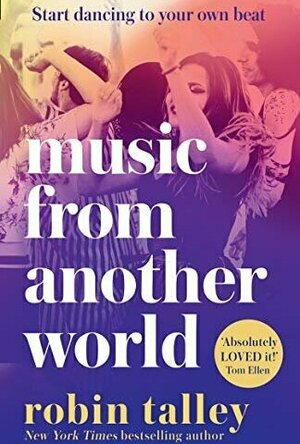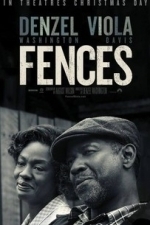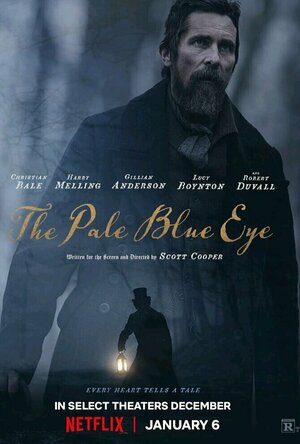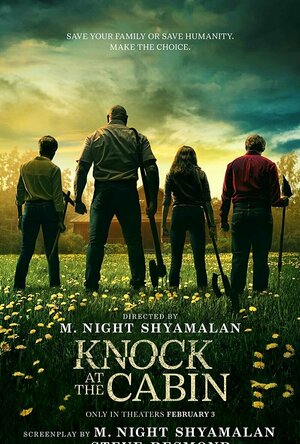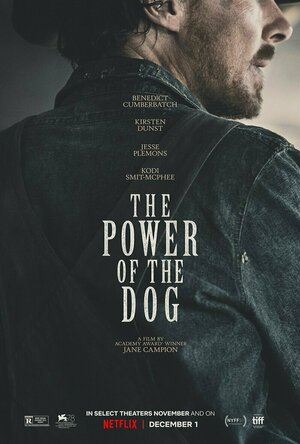Search
Search results

Canon PRINT Inkjet/SELPHY
Photo & Video and Utilities
App
Canon PRINT Inkjet/SELPHY is the print and scan app for PIXMA, MAXIFY and SELPHY from your iPad,...
Ivana A. | Diary of Difference (1171 KP) rated Music From Another World in Books
Aug 3, 2020
<a href="https://amzn.to/2Wi7amb">Wishlist</a>; | <a
<a href="https://diaryofdifference.com/">Blog</a>; | <a href="https://www.facebook.com/diaryofdifference/">Facebook</a>; | <a href="https://twitter.com/DiaryDifference">Twitter</a>; | <a href="https://www.instagram.com/diaryofdifference/">Instagram</a>; | <a href="https://www.pinterest.co.uk/diaryofdifference/pins/">Pinterest</a>;
<img src="https://diaryofdifference.com/wp-content/uploads/2020/05/Book-Review-Banner-53.png"/>;
Music From Another World is a powerful and emotional read, about fighting for freedom and acceptance and the amazing feeling when you finally find a crowd where you can really fit in!
<b><i>Synopsis:</i></b>
It’s summer 1977 and closeted lesbian Tammy Larson can’t be herself anywhere. Not at her strict Christian high school. Not at her conservative Orange County church. And certainly not at home, where her ultra religious aunt relentlessly organizes anti gay political campaigns. Tammy’s only outlet is writing secret letters in her diary to gay civil rights activist Harvey Milk… until she has a real-life pen pal who changes everything.
Sharon Hawkins will bond with Tammy over punk music and carefully shared secrets, and soon their letters become the one place she can be honest. The rest of her life in San Francisco is full of lies. The kind she tells for others - like helping her gay brother hide the truth from their mom. But as anti gay fervor in America reaches a frightening new pitch, Sharon and Tammy must rely on their long-distance friendship to discover their deeply personal truths. What they’ll stand for…and who they’ll rise against.
<b><i>My Thoughts: </i></b>
From the very first moment I read the synopsis, I knew I needed to read this book. It seemed filled with 1970's spirit, the movement to be brave and honest. The discussions in this book are through the form of letters or diary entries, which I really enjoyed. This writing style helped me get through the book extremely quickly.
We get to meet the two girls, Tammy and Sharon, both very different, but both struggling with the same issues of being contained in a world where they cannot be themselves. And even though this particular book is about the LGBTQ+ community, I believe this issue also applies to anything else in life, where people feel like they cannot be who they really are. Sometimes it is religion, other times it is political opinions, it could even be different hobbies where the person feels needs to contain in themselves because of the fear they might be frowned upon or laughed at.
<b><i>It is amazing to see how the world has progressed over the years, where people start feeling like they can finally express who they really are. It is not yet ideal, but I have a good feeling we are getting there. There is also the very powerful force of the internet, the advantage people didn't have before, to find people across the globe that share the same beliefs and interests. </i></b>
Music From Another World really moved me, and it brought up various emotions. It talks about the struggles and the reprimands, but it also talks about real happiness and laughter. The amazing feeling when you finally find a crowd that accepts you and where you truly belong. I believe this is the first book with a plot that made me feel so happy, so sad and so angry at the same time.
Thank you to NetGalley and the HQ Team, for sending me an ARC copy of this book in exchange for an honest review!
<a href="https://diaryofdifference.com/">Blog</a>; | <a href="https://www.facebook.com/diaryofdifference/">Facebook</a>; | <a href="https://twitter.com/DiaryDifference">Twitter</a>; | <a href="https://www.instagram.com/diaryofdifference/">Instagram</a>; | <a href="https://www.pinterest.co.uk/diaryofdifference/pins/">Pinterest</a>;
<img src="https://diaryofdifference.com/wp-content/uploads/2020/05/Book-Review-Banner-53.png"/>;
Music From Another World is a powerful and emotional read, about fighting for freedom and acceptance and the amazing feeling when you finally find a crowd where you can really fit in!
<b><i>Synopsis:</i></b>
It’s summer 1977 and closeted lesbian Tammy Larson can’t be herself anywhere. Not at her strict Christian high school. Not at her conservative Orange County church. And certainly not at home, where her ultra religious aunt relentlessly organizes anti gay political campaigns. Tammy’s only outlet is writing secret letters in her diary to gay civil rights activist Harvey Milk… until she has a real-life pen pal who changes everything.
Sharon Hawkins will bond with Tammy over punk music and carefully shared secrets, and soon their letters become the one place she can be honest. The rest of her life in San Francisco is full of lies. The kind she tells for others - like helping her gay brother hide the truth from their mom. But as anti gay fervor in America reaches a frightening new pitch, Sharon and Tammy must rely on their long-distance friendship to discover their deeply personal truths. What they’ll stand for…and who they’ll rise against.
<b><i>My Thoughts: </i></b>
From the very first moment I read the synopsis, I knew I needed to read this book. It seemed filled with 1970's spirit, the movement to be brave and honest. The discussions in this book are through the form of letters or diary entries, which I really enjoyed. This writing style helped me get through the book extremely quickly.
We get to meet the two girls, Tammy and Sharon, both very different, but both struggling with the same issues of being contained in a world where they cannot be themselves. And even though this particular book is about the LGBTQ+ community, I believe this issue also applies to anything else in life, where people feel like they cannot be who they really are. Sometimes it is religion, other times it is political opinions, it could even be different hobbies where the person feels needs to contain in themselves because of the fear they might be frowned upon or laughed at.
<b><i>It is amazing to see how the world has progressed over the years, where people start feeling like they can finally express who they really are. It is not yet ideal, but I have a good feeling we are getting there. There is also the very powerful force of the internet, the advantage people didn't have before, to find people across the globe that share the same beliefs and interests. </i></b>
Music From Another World really moved me, and it brought up various emotions. It talks about the struggles and the reprimands, but it also talks about real happiness and laughter. The amazing feeling when you finally find a crowd that accepts you and where you truly belong. I believe this is the first book with a plot that made me feel so happy, so sad and so angry at the same time.
Thank you to NetGalley and the HQ Team, for sending me an ARC copy of this book in exchange for an honest review!

Medical Medium Life-Changing Foods
Book
The highly anticipated new release from the groundbreaking, New York Times best-selling author of...
Health food

Mandala Coloring Pages for Adults
Entertainment and Games
App
Don't you sometimes hate that you are an adult? Try Mandala Coloring Pages - adult coloring book...
Janeeny (200 KP) rated Vesper Flights in Books
Sep 7, 2021
I received an ARC of this book in exchange for an honest review.
Vesper Flights is Helen Macdonald’s latest book chronicling her relationship with nature. This is slightly different from her previous books in the respect it’s not a linear narrative but a collection of essays that also explores “The human relationship with nature”.
We are given more of an insight into Macdonald’s upbringing as she regales us with anecdotes of emotional journeys to her childhood home and dark episodes on a falcon breeding farm in Wales. Her passion for nature and the natural world comes across strongly, without sermonising. In one chapter she mentions Fox hunting and how she’s morally opposed to it, without admonishing those that do partake in it. A common thread throughout the essays is how we can be so involved with the conservation of nature yet still be so detached from it. Admittedly it’s something that I’ve never even thought about before, so I’ll be paying more attention to the way I interact with the world around me from now on.
.
One thing that seems to draw me in with Mcdonald’s writing is that there always seems to be an underlying sadness in the way she writes. Even when she’s partaking in a stunning bird-watching event, she never quite gives herself over to the joy and excitement of that moment. At one point after reading how she once covered herself in mud and twigs and stalked a herd of cows I just wanted to put my arms around her and ask if she’s ok. (Oddly enough in the same chapter there is a very dark incident with a dying Ostrich, but it was the incident with the cows that worried me most)
I’d be interested to read something Macdonald wrote before her father passed away. It is obvious that the death of her father did have a profound effect on her, and it would be curious to see if that is also what has influenced this mournful quality in her writing.
Don’t get me wrong, this isn’t a critique in any way I like the way she can convey the melancholy of a murmuration. As a perpetually positive person, I do need to be prodded with the emotion stick every now and again.
There is a line in one of the essays “I shouldn’t do it also because pulling at your heart on purpose is a compulsion as particular and disconcerting as pressing on a healing bruise” so maybe she gets some cathartic pleasure from heartache. I’m envious; I lost both my parents within a few years of each other and I find it very hard to engage in any strong emotions regarding this. I miss them, but I think my innate ability to detach myself from unpleasant situations has worked a little too well here and I can’t articulate exactly how that makes me feel.
Woah, so that was a major digression, let’s put that brick back and summarise the review, shall we?
After reading Vesper Flights, even if you don’t like the whole book, I defy you not to have a favourite chapter. It’s close but I think I liked ‘Goats’ the best, as not only is it a funny story, but you can practically hear the little smile as Macdonald reminisces about her dad
Vesper Flights is Helen Macdonald’s latest book chronicling her relationship with nature. This is slightly different from her previous books in the respect it’s not a linear narrative but a collection of essays that also explores “The human relationship with nature”.
We are given more of an insight into Macdonald’s upbringing as she regales us with anecdotes of emotional journeys to her childhood home and dark episodes on a falcon breeding farm in Wales. Her passion for nature and the natural world comes across strongly, without sermonising. In one chapter she mentions Fox hunting and how she’s morally opposed to it, without admonishing those that do partake in it. A common thread throughout the essays is how we can be so involved with the conservation of nature yet still be so detached from it. Admittedly it’s something that I’ve never even thought about before, so I’ll be paying more attention to the way I interact with the world around me from now on.
.
One thing that seems to draw me in with Mcdonald’s writing is that there always seems to be an underlying sadness in the way she writes. Even when she’s partaking in a stunning bird-watching event, she never quite gives herself over to the joy and excitement of that moment. At one point after reading how she once covered herself in mud and twigs and stalked a herd of cows I just wanted to put my arms around her and ask if she’s ok. (Oddly enough in the same chapter there is a very dark incident with a dying Ostrich, but it was the incident with the cows that worried me most)
I’d be interested to read something Macdonald wrote before her father passed away. It is obvious that the death of her father did have a profound effect on her, and it would be curious to see if that is also what has influenced this mournful quality in her writing.
Don’t get me wrong, this isn’t a critique in any way I like the way she can convey the melancholy of a murmuration. As a perpetually positive person, I do need to be prodded with the emotion stick every now and again.
There is a line in one of the essays “I shouldn’t do it also because pulling at your heart on purpose is a compulsion as particular and disconcerting as pressing on a healing bruise” so maybe she gets some cathartic pleasure from heartache. I’m envious; I lost both my parents within a few years of each other and I find it very hard to engage in any strong emotions regarding this. I miss them, but I think my innate ability to detach myself from unpleasant situations has worked a little too well here and I can’t articulate exactly how that makes me feel.
Woah, so that was a major digression, let’s put that brick back and summarise the review, shall we?
After reading Vesper Flights, even if you don’t like the whole book, I defy you not to have a favourite chapter. It’s close but I think I liked ‘Goats’ the best, as not only is it a funny story, but you can practically hear the little smile as Macdonald reminisces about her dad
Bob Mann (459 KP) rated Fences (2016) in Movies
Sep 29, 2021
The Last Post.
In “Fences” Denzel Washington plays Troy – a bitter, self-centred and selfish man in his mid-fifties who loves the sound of his own voice. They say “empty vessels make the most noise” and here is a case in point. Set in the early fifties, race plays a strong card in every aspect of life, and Troy feels betrayed by a failed baseball career that – in his eyes at least – looked over his skills to the colour of his skin. But Troy is also a stubborn cuss, and refuses to acknowledge that even in the 50’s “The times they are a changing’”. His cussedness puts him on a collision course with his teenage son Cory (Jovan Adepo), given his aspirations for a college football scholarship, and his mother (Viola Davis, “The Help”) tries to keep the peace between the two of them.
This is a film primarily about resistance to change. All those changes in the outside world are on the ‘other side of the fence’ that Troy habitually tries to finish but never seems to put his mind to. Fences keep things out; but they also keep things in, and Troy is in a cocoon of his own making. He justifies his actions as a ‘family provider’ with lengthy speeches but ultimately they deliver hollow words and assertions that don’t stand up to scrutiny.
This is a pressure cooker of family life that is primed to blow, and a revelation (which I didn’t see coming) sets that fuse alight.
This is a film worth watching for the acting performances of Denzel Washington and (particularly) Viola Davis, winner of the Best Supporting Actress BAFTA and a strong contender for the Oscar. Both give assured performances, although Troy is such an instantly dis-likable and pitiable character that I could feel my emotions influencing my judgement about his performance.
But this is also a strong ensemble cast, with Mykelti Williamson (famously appearing as Bubba of the ‘Bubba Gump Shrimp Factory’ fame) being effective as Troy’s disabled brother and English-born Jovan Adepo being particularly impressive in an extremely assured feature debut.
However, the Broadway roots of the piece are highly visible with 98% of the film set either in the back yard, in the house, or on the front steps (the set could clearly rotate!). For such a claustrophobic topic, this is perhaps apt. But as a feature film I longed for the action to go elsewhere. The film version of the story – with a few tweaks to the screenplay – has lots of opportunities for this, but these are never taken. This makes the whole piece feel ‘worthy but dull’. In particular, anyone looking for a useful tutorial on fence building needs to look elsewhere!
As for the recent “Moonlight” there is also excessive use of the “N” word and other outdated racial references that have the potential to offend.
Good luck to Viola Davis and Denzel Washington (who also directed this) for their Best Supporting Actress and Best Actor Oscars nominations. But “Best Film” Oscar? No, I don’t think so. In truth this is a film that I will struggle to remember or get excited about in a month’s time and it will not be on my re-watch list.
This is a film primarily about resistance to change. All those changes in the outside world are on the ‘other side of the fence’ that Troy habitually tries to finish but never seems to put his mind to. Fences keep things out; but they also keep things in, and Troy is in a cocoon of his own making. He justifies his actions as a ‘family provider’ with lengthy speeches but ultimately they deliver hollow words and assertions that don’t stand up to scrutiny.
This is a pressure cooker of family life that is primed to blow, and a revelation (which I didn’t see coming) sets that fuse alight.
This is a film worth watching for the acting performances of Denzel Washington and (particularly) Viola Davis, winner of the Best Supporting Actress BAFTA and a strong contender for the Oscar. Both give assured performances, although Troy is such an instantly dis-likable and pitiable character that I could feel my emotions influencing my judgement about his performance.
But this is also a strong ensemble cast, with Mykelti Williamson (famously appearing as Bubba of the ‘Bubba Gump Shrimp Factory’ fame) being effective as Troy’s disabled brother and English-born Jovan Adepo being particularly impressive in an extremely assured feature debut.
However, the Broadway roots of the piece are highly visible with 98% of the film set either in the back yard, in the house, or on the front steps (the set could clearly rotate!). For such a claustrophobic topic, this is perhaps apt. But as a feature film I longed for the action to go elsewhere. The film version of the story – with a few tweaks to the screenplay – has lots of opportunities for this, but these are never taken. This makes the whole piece feel ‘worthy but dull’. In particular, anyone looking for a useful tutorial on fence building needs to look elsewhere!
As for the recent “Moonlight” there is also excessive use of the “N” word and other outdated racial references that have the potential to offend.
Good luck to Viola Davis and Denzel Washington (who also directed this) for their Best Supporting Actress and Best Actor Oscars nominations. But “Best Film” Oscar? No, I don’t think so. In truth this is a film that I will struggle to remember or get excited about in a month’s time and it will not be on my re-watch list.
BankofMarquis (1832 KP) rated The Pale Blue Eye (2022) in Movies
Jan 15, 2023
Haunting and Intriguing
An eerie, gothic murder mystery pairing an ingenious Detective with a young Edgar Allan Poe is now streaming on Netflix and is the perfect way to shut out the January winds and hibernate on your couch and get involved in the mystery while sitting in front of a warm, roaring fire (or heat lamp) and your favorite warm (possibly adult) beverage).
Written for the screen (from book by Louis Bayard) and Directed by Scott Cooper (OUT OF THE FURNACE), THE PALE BLUE EYE stars the always good Christian Bale (probably my favorite actor working today) as Civilian Detective Augustus Landor who is summoned to 1830’s West Point Military Academy to solve a murder. He is aided by a young cadet played by Harry Melling (Dudley Dursley in the HARRY POTTER FILMS) who turns out to be none other than Edgar Allan Poe.
Cooper films this movie in shadow and dark brown and yellow tones, giving the 1830’s setting a certain dream-like, dreary quality that underscores the gruesome goings-on happening behind the scenes at the fledgling United States Military Academy. These types of films - and the mood that is permeated throughout - can often be slow slogs and often times bogs down under the weight of it’s own pretentiousness - but Cooper keeps the action moving forward (though at a deliberate pace) often-times mimicking the piecing together of the circumstances that Bale’s character is doing.
Thank goodness Cooper had the good sense to reunite with his OUT OF THE FURNACE star and cast Bale in the lead role. The character of Detective Augustus Landor is dark and brooding - himself still working through the emotions of a tragedy from his past. But he is also thoughtful and deliberate in his detective work and Bale handles these moods…and the pacing of the film…like the pro that he is. If for no other reason, check out THE PALE BLUE EYE (a reference to Poe’s TELL TALE HEART) for Bale’s performance at the center of things.
Fortunately, Bale is aided in this film by a strong ensemble of (mostly) British actors from Toby Jones to Gillian Anderson to Simon McBurney and Timothy Spall - they all bring their considerable talents to lesser roles as suspects and/or witnesses in this “whodunnit”. Cooper also trots out good ol’ (and I do mean old) Robert Duvall for a “blink or you’ll miss it” cameo. The casting works well for this gothic murder mystery.
And then there is Melling as Edgar Allan Poe. He plays Poe as you might expect one to play a young Edgar Allan Poe - as an “odd duck” who is fascinated by macabre scenarios (which would be later found in his storytelling), but Melling gives him an intelligence and gentleness of soul that really works in this case.
The Cinematography of this movie is bleak and dark - as befits a gothic murder mystery - and the pacing is not fast in any sense of the word, but if you click into this world, you’ll be rewarding by an interesting murder mystery that resolves itself in a surprising - and satisfactory - way.
Letter Grade: B+
8 stars (out of 10) and you can take that to the Bank(ofMarquis)
Written for the screen (from book by Louis Bayard) and Directed by Scott Cooper (OUT OF THE FURNACE), THE PALE BLUE EYE stars the always good Christian Bale (probably my favorite actor working today) as Civilian Detective Augustus Landor who is summoned to 1830’s West Point Military Academy to solve a murder. He is aided by a young cadet played by Harry Melling (Dudley Dursley in the HARRY POTTER FILMS) who turns out to be none other than Edgar Allan Poe.
Cooper films this movie in shadow and dark brown and yellow tones, giving the 1830’s setting a certain dream-like, dreary quality that underscores the gruesome goings-on happening behind the scenes at the fledgling United States Military Academy. These types of films - and the mood that is permeated throughout - can often be slow slogs and often times bogs down under the weight of it’s own pretentiousness - but Cooper keeps the action moving forward (though at a deliberate pace) often-times mimicking the piecing together of the circumstances that Bale’s character is doing.
Thank goodness Cooper had the good sense to reunite with his OUT OF THE FURNACE star and cast Bale in the lead role. The character of Detective Augustus Landor is dark and brooding - himself still working through the emotions of a tragedy from his past. But he is also thoughtful and deliberate in his detective work and Bale handles these moods…and the pacing of the film…like the pro that he is. If for no other reason, check out THE PALE BLUE EYE (a reference to Poe’s TELL TALE HEART) for Bale’s performance at the center of things.
Fortunately, Bale is aided in this film by a strong ensemble of (mostly) British actors from Toby Jones to Gillian Anderson to Simon McBurney and Timothy Spall - they all bring their considerable talents to lesser roles as suspects and/or witnesses in this “whodunnit”. Cooper also trots out good ol’ (and I do mean old) Robert Duvall for a “blink or you’ll miss it” cameo. The casting works well for this gothic murder mystery.
And then there is Melling as Edgar Allan Poe. He plays Poe as you might expect one to play a young Edgar Allan Poe - as an “odd duck” who is fascinated by macabre scenarios (which would be later found in his storytelling), but Melling gives him an intelligence and gentleness of soul that really works in this case.
The Cinematography of this movie is bleak and dark - as befits a gothic murder mystery - and the pacing is not fast in any sense of the word, but if you click into this world, you’ll be rewarding by an interesting murder mystery that resolves itself in a surprising - and satisfactory - way.
Letter Grade: B+
8 stars (out of 10) and you can take that to the Bank(ofMarquis)
Emma @ The Movies (1786 KP) rated Knock at the cabin (2023) in Movies
Feb 28, 2023
When M. Night Shyamalan's name comes up on something, my brow furrows and I purse my lips... I'm never quite sure how to feel.
Eric, Andrew and Wen, take an idyllic trip to a peaceful cabin. But that peace is shattered when the knock-off Guardians of the Galaxy show up.
First thing I want to say, despite it being an M.NS film, it doesn't have the usual dubious tangent in it. I suspect we can put this down to the fact it's based on source material, namely The Cabin at the End of the World by Paul Trembley.
I wanted to see what I could talk about without spoiling the film at all. The synopsis is fairly vague, but intriguing. Then I rewatched the trailer, and from that, I could probably talk about the majority of this hour and forty minute film. The latter basically telling everything makes me wonder how it wasn't spoiled for me going in.
Knock at the Cabin boils down to a look at personal faith in the face of terror, for those on both sides of the incident.
While the majority of the story is set in the isolated cabin, we're shown flashbacks to Eric and Andrew's life. Heartbreak, trauma, joy, vengeance, it has been filled with so much, and that being peppered into the main story really helps to shape how we see their separate personalities and reactions.
The acting is an interesting one. The nature of the situation means that everyone is feeling a massive cycle of emotions... and somehow that works.
The group dynamic of Eric, Andrew and Wen was incredible, with Jonathan Groff and Kristen Cui being the standouts. I don't know that I would have been on board with Ben Aldridge as Andrew if it hadn't been for the pairing with Groff.
Opposite them, we get an interesting mix of characters who are led by Leonard... I am so proud of Dave Bautista right now, this was an amazing performance. I love him doing comedy (My Spy is still probably my favourite), but this was a great change of pace, he channels the character's profession into the situation so well... 5 stars for Bautista, no notes.
The other three bring up the rear with some chaotic energy. I just cannot unsee Ron Weasley though. I know he's been in other things since then, but I haven't happened across any of them, and as such, he was entirely distracting. It wasn't a bad turn, but it did overwhelm Nikki Amuka-Bird and Abby Quinn's roles for me.
M. Night Shymalan does his cameo and throws in his usual colour references for the regular viewers. I won't go into that, as it definitely constitutes spoilers, but it might not be something that's common knowledge, so absolutely worth a Google afterwards.
IMDb lists Knock at the Cabin as horror, mystery and thriller. Thriller, check. Mystery, a stretch. Horror, in my opinion, completely inaccurate. Having "horror" over everything about this film put people off watching it, and that's a great shame.
I was left with one big thought after seeing this, and that's that somewhere, in a remote cabin, a group of people have been playing this game for the last 3 years.
Originally posted on: https://emmaatthemovies.blogspot.com/2023/02/knock-at-cabin-movie-review.html
Eric, Andrew and Wen, take an idyllic trip to a peaceful cabin. But that peace is shattered when the knock-off Guardians of the Galaxy show up.
First thing I want to say, despite it being an M.NS film, it doesn't have the usual dubious tangent in it. I suspect we can put this down to the fact it's based on source material, namely The Cabin at the End of the World by Paul Trembley.
I wanted to see what I could talk about without spoiling the film at all. The synopsis is fairly vague, but intriguing. Then I rewatched the trailer, and from that, I could probably talk about the majority of this hour and forty minute film. The latter basically telling everything makes me wonder how it wasn't spoiled for me going in.
Knock at the Cabin boils down to a look at personal faith in the face of terror, for those on both sides of the incident.
While the majority of the story is set in the isolated cabin, we're shown flashbacks to Eric and Andrew's life. Heartbreak, trauma, joy, vengeance, it has been filled with so much, and that being peppered into the main story really helps to shape how we see their separate personalities and reactions.
The acting is an interesting one. The nature of the situation means that everyone is feeling a massive cycle of emotions... and somehow that works.
The group dynamic of Eric, Andrew and Wen was incredible, with Jonathan Groff and Kristen Cui being the standouts. I don't know that I would have been on board with Ben Aldridge as Andrew if it hadn't been for the pairing with Groff.
Opposite them, we get an interesting mix of characters who are led by Leonard... I am so proud of Dave Bautista right now, this was an amazing performance. I love him doing comedy (My Spy is still probably my favourite), but this was a great change of pace, he channels the character's profession into the situation so well... 5 stars for Bautista, no notes.
The other three bring up the rear with some chaotic energy. I just cannot unsee Ron Weasley though. I know he's been in other things since then, but I haven't happened across any of them, and as such, he was entirely distracting. It wasn't a bad turn, but it did overwhelm Nikki Amuka-Bird and Abby Quinn's roles for me.
M. Night Shymalan does his cameo and throws in his usual colour references for the regular viewers. I won't go into that, as it definitely constitutes spoilers, but it might not be something that's common knowledge, so absolutely worth a Google afterwards.
IMDb lists Knock at the Cabin as horror, mystery and thriller. Thriller, check. Mystery, a stretch. Horror, in my opinion, completely inaccurate. Having "horror" over everything about this film put people off watching it, and that's a great shame.
I was left with one big thought after seeing this, and that's that somewhere, in a remote cabin, a group of people have been playing this game for the last 3 years.
Originally posted on: https://emmaatthemovies.blogspot.com/2023/02/knock-at-cabin-movie-review.html
BankofMarquis (1832 KP) rated The Power of the Dog (2021) in Movies
Dec 7, 2021
Deep and Layered
If the movie you are watching has a long shot of wheat blowing in the wind, then you are watching a character drama. If that same film also includes a 5 minute scene of someone braiding rope, then you have THE POWER OF THE DOG.
Written and Directed by Jane Campion (THE PIANO) and based on the best-selling novel by Thomas Savage, THE POWER OF THE DOG tells the tale of 2 brothers, talkative and charismatic Phil (Benedict Cumberbatch) and quiet and contemplative George (Jesse Plemons) who are tending their cattle ranch in Montana in the mid-1920’s. As horses give way to horseless carriages, George falls for a widow (Kirsten Dunst) who has an effeminate son (Kodi Smit-McPhee) and this relationship makes Phil face his own feelings - and a changing world.
In the hands of Campion, this film is a quiet, introspective look at how a hard-drinking, hard-living Cowboy deals with a changing world - and his own pent up emotions - and it works well. She weaves a fascinating story that takes its time unfurling it’s pages and the time that the audience takes in steeping themselves in the story and the characters is time well spent, indeed.
This is because the great Benedict Cumberbatch (TV’s SHERLOCK) is on-screen for 95% of the film as Phil and he commands the screen every moment that his presence is known. It is a bravura - though eerily quiet and introspective - performance by Cumberbatch. Campion and Cumberbatch create a memorable character that fills the screen not because he is wide or high or showy, but because he is deep and layered and the film spends most of its 2 hour and 6 minute running time peeling back the layers and digging deep into this character. It is an Oscar-worthy performance and is a shoo-in Oscar nominee and would not be surprising if Cumberbatch finally wins his Oscar for this role.
Plemons and Dunst (who played a couple in the first season of the TV series FARGO) are the catalyst that set the film - and the discoveries - in motion, but, though they are good, they have very little to do besides react to Cumberbatch’s characters’ moves.
Surprisingly, the character that does stand-out and the actor who does go toe-to-toe with Cumberbatch’s Phil is Peter, the son of Rose and played by Kodi Smit-McPhee (NIghtcrawler in X-MEN:APOCALYPSE) who is (at first) befriended by Phil as a joke and becomes closer and closer to him as the film progresses. It is through Peter that we dig through the layers of Phil - and it is a fascinating journey.
This is a gorgeous film to look at - Cinematographer Ari Wegner (THE GIRLFRIEND EXPERIENCE) is a shoo-in for an Oscar nomination as well - and this is good, because Phil (and the audience) spend long stretches looking out in the wilderness, contemplating the world - and change.
Not the fastest moving film you will ever encounter, but if you are in the mood for this sort of thing and can get caught up with discovering the layers of Phil, then you will be rewarded with a layered and deep experience.
Letter Grade: A-
8 stars (out of 10) and you can take that to the Bank(ofMarquis)
Written and Directed by Jane Campion (THE PIANO) and based on the best-selling novel by Thomas Savage, THE POWER OF THE DOG tells the tale of 2 brothers, talkative and charismatic Phil (Benedict Cumberbatch) and quiet and contemplative George (Jesse Plemons) who are tending their cattle ranch in Montana in the mid-1920’s. As horses give way to horseless carriages, George falls for a widow (Kirsten Dunst) who has an effeminate son (Kodi Smit-McPhee) and this relationship makes Phil face his own feelings - and a changing world.
In the hands of Campion, this film is a quiet, introspective look at how a hard-drinking, hard-living Cowboy deals with a changing world - and his own pent up emotions - and it works well. She weaves a fascinating story that takes its time unfurling it’s pages and the time that the audience takes in steeping themselves in the story and the characters is time well spent, indeed.
This is because the great Benedict Cumberbatch (TV’s SHERLOCK) is on-screen for 95% of the film as Phil and he commands the screen every moment that his presence is known. It is a bravura - though eerily quiet and introspective - performance by Cumberbatch. Campion and Cumberbatch create a memorable character that fills the screen not because he is wide or high or showy, but because he is deep and layered and the film spends most of its 2 hour and 6 minute running time peeling back the layers and digging deep into this character. It is an Oscar-worthy performance and is a shoo-in Oscar nominee and would not be surprising if Cumberbatch finally wins his Oscar for this role.
Plemons and Dunst (who played a couple in the first season of the TV series FARGO) are the catalyst that set the film - and the discoveries - in motion, but, though they are good, they have very little to do besides react to Cumberbatch’s characters’ moves.
Surprisingly, the character that does stand-out and the actor who does go toe-to-toe with Cumberbatch’s Phil is Peter, the son of Rose and played by Kodi Smit-McPhee (NIghtcrawler in X-MEN:APOCALYPSE) who is (at first) befriended by Phil as a joke and becomes closer and closer to him as the film progresses. It is through Peter that we dig through the layers of Phil - and it is a fascinating journey.
This is a gorgeous film to look at - Cinematographer Ari Wegner (THE GIRLFRIEND EXPERIENCE) is a shoo-in for an Oscar nomination as well - and this is good, because Phil (and the audience) spend long stretches looking out in the wilderness, contemplating the world - and change.
Not the fastest moving film you will ever encounter, but if you are in the mood for this sort of thing and can get caught up with discovering the layers of Phil, then you will be rewarded with a layered and deep experience.
Letter Grade: A-
8 stars (out of 10) and you can take that to the Bank(ofMarquis)
Gareth von Kallenbach (980 KP) rated Top Gun: Maverick (2022) in Movies
May 19, 2022
Back in 1987, Tom Cruise and Paramount released “Top Gun” and in doing so created a cultural phenomenon that launched Cruise into Superstardom and became an enduring classic.
Now after decades away and delays due to the pandemic, Cruise has returned to the franchise with “Top Gun: Maverick” and has crafted the rare feat, of a sequel that is not only better than the original but also gives audiences an edge of the seat summer event film when it is needed the most.
Cruise stars as Captain Pete Mitchell who after thirty years is not only haunted by his past but unable to shed his insubordinate and impulsive ways which have kept him from reaching the rank of Admiral and have moved him from one assignment to another.
After his latest action confirms his incredible aviation skills but infuriates the upper brass in the process, Mitchell is out of options as he is unwilling to retire, unable to be promoted, and out of posting options. He is tasked by an old friend with enough clout to watch out for him to return to the Top Gun program as an instructor. Mitchell is hesitant as his last attempt as an instructor did not last long and he believes he is better suited to fly versus teaching.
It is learned that an enemy faction is about to open a Uranium enrichment facility in violation of established law that would threaten the region, and Mitchell is tasked with training a team of Top Gun graduates in three weeks who can make what appears to be a near-impossible assault on the facility to destroy it before it becomes a threat.
While the assembled pilots represent a brash and talented group, Mitchell must contend with the ghosts of his past as one of the members Bradley ‘Rooster’ Bradshaw (Miles Teller), is the son of his deceased friend Goose and has a very fractured relationship with Bradshaw over their shared past.
With pressure on him from Admiral Simpson (Jon Hamm), Mitchell must somehow find a way to train the group in a small amount of time for what is considered by many to be an impossible mission due to the terrain, defenses, and location of their target.
The film is an edge-of-the-seat adrenaline rush that grabs ahold of you from the start and never lets up. From the opening music to the intense aerial sequences, the audience was hooked as gasps and cheers erupted frequently as the characters and action clearly connected with the audience.
While the visual sequences are nothing short of spectacular, the film is a character-based story and there is a depth to Mitchell and many of the cast that goes much deeper than one would normally see in a summer action film.
Jennifer Connelly offers a great counter-point to Mitchell as a person from his past that has known him through several key moments of his career and helps him endure the turbulent emotions that he has.
From the solid characters and story to the rousing final segments of the movie, “Top Gun: Maverick” returns the Summer Event film in grand style and exceeded my expectations and the original in every way.
Now after decades away and delays due to the pandemic, Cruise has returned to the franchise with “Top Gun: Maverick” and has crafted the rare feat, of a sequel that is not only better than the original but also gives audiences an edge of the seat summer event film when it is needed the most.
Cruise stars as Captain Pete Mitchell who after thirty years is not only haunted by his past but unable to shed his insubordinate and impulsive ways which have kept him from reaching the rank of Admiral and have moved him from one assignment to another.
After his latest action confirms his incredible aviation skills but infuriates the upper brass in the process, Mitchell is out of options as he is unwilling to retire, unable to be promoted, and out of posting options. He is tasked by an old friend with enough clout to watch out for him to return to the Top Gun program as an instructor. Mitchell is hesitant as his last attempt as an instructor did not last long and he believes he is better suited to fly versus teaching.
It is learned that an enemy faction is about to open a Uranium enrichment facility in violation of established law that would threaten the region, and Mitchell is tasked with training a team of Top Gun graduates in three weeks who can make what appears to be a near-impossible assault on the facility to destroy it before it becomes a threat.
While the assembled pilots represent a brash and talented group, Mitchell must contend with the ghosts of his past as one of the members Bradley ‘Rooster’ Bradshaw (Miles Teller), is the son of his deceased friend Goose and has a very fractured relationship with Bradshaw over their shared past.
With pressure on him from Admiral Simpson (Jon Hamm), Mitchell must somehow find a way to train the group in a small amount of time for what is considered by many to be an impossible mission due to the terrain, defenses, and location of their target.
The film is an edge-of-the-seat adrenaline rush that grabs ahold of you from the start and never lets up. From the opening music to the intense aerial sequences, the audience was hooked as gasps and cheers erupted frequently as the characters and action clearly connected with the audience.
While the visual sequences are nothing short of spectacular, the film is a character-based story and there is a depth to Mitchell and many of the cast that goes much deeper than one would normally see in a summer action film.
Jennifer Connelly offers a great counter-point to Mitchell as a person from his past that has known him through several key moments of his career and helps him endure the turbulent emotions that he has.
From the solid characters and story to the rousing final segments of the movie, “Top Gun: Maverick” returns the Summer Event film in grand style and exceeded my expectations and the original in every way.
